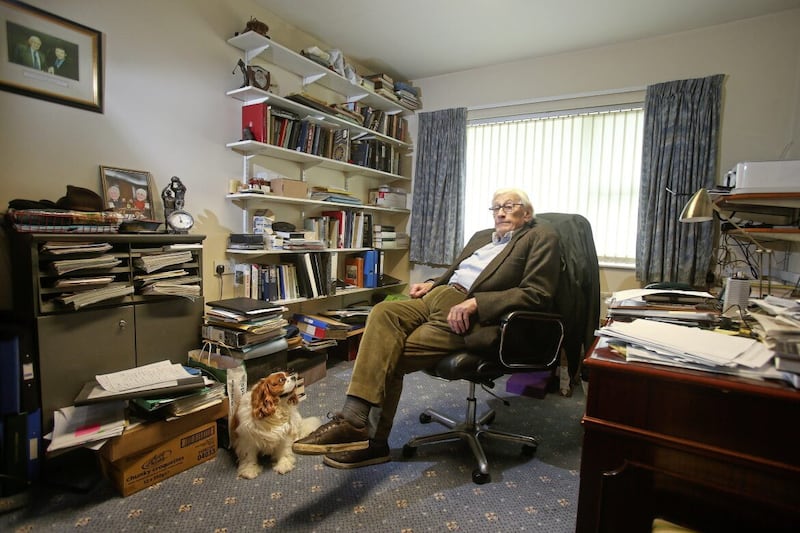IF this is the season of goodwill no one told Seamus Mallon, his interview with William Crawley on BBC Radio Ulster this week calling into question the achievements of former SDLP leader John Hume made for difficult listening.
While now a very ill man John Hume was once a political colossus who helped secure peace and placed saving lives ahead of his own political ambitions.
Going against the advice of many within his own party he entered into talks with Sinn Féin that resulted in the Hume/Adams document of 1993 which is widely accepted as paving the way for the Good Friday Agreement.
Seamus Mallon used an insulting analogy when he said his party's former leader had been played like a '3lb trout' by Sinn Féin, who he claims used him to gain respectability in America.
The argument is deeply flawed in that republicans have always enjoyed a degree of moral and financial support from the US, support that was always going to increase accordingly as the IRA moved away from violence.
Party leader Gerry Adams enjoys almost cult like status in certain political circles in America, an official once told me his arrival at St Patrick's Day function in Washington resulted in an embarrassing show of frenzied hysteria by the over excited diaspora.
We can attribute this schoolgirl-like adulation to Irish America's tendency to over romanticise our conflict rather than anything John Hume may have done.
It's easy to look through green tinted glasses at a situation if you've never had to walk behind the coffin of a loved one.
John Hume is widely accepted as one of the few characters to have survived political life in Northern Ireland and moved into retirement still respected by people from almost all walks of life, except it seems some of those within his own party who resent his achievements.
Undermining his role in those early talks - taken at great personal risk and which undoubtedly saved lives - as if he were a mere pawn was, whether intentional or not, a slight on the legacy of John Hume and left a sour taste.
Mallon's criticism of the current two party monopoly at Stormont during the same interview was of course his opinion and reflective of the views of a section of the public who are frustrated at the slow pace of change and the inability to implement effective legislation without having to lurch into yet another round of crisis talks, or as happened with the inappropriately named 'fresh start', bat responsibility back to Westminster.
However, as a former politician he must also recognise that's how democracy works and as the electorate continue to vote for the two main parties then that mandate should be recognised and respected.
It seems Mallon's personal resentment of Sinn Féin has clouded his judgment to such an extent he was willing to damage the legacy of a man who made the SDLP - a party now in seemingly unstoppable decline - into a political force.
A founding father of the civil rights campaign and a man who helped introduce the financial lifeline to working class communities that is the Credit Union movement, deserves more respect from his political peers.
When casting aspersions on others Seamus Mallon must also accept responsibility for the failures of the then fledgling assembly under his leadership as Deputy First Minister with political progress hampered by his notoriously frosty relationship with then First Minister David Trimble.
That period of our recent past when Hume and Mallon ruled nationalism and Sinn Féin were still a rogue, radical revolutionary party, their leadership being voiced over by actors because of political censorship, will be what our children read about in school history books.
The imperfect peace we cling to so preciously has highlighted many social injustices that were once masked by the violence that dominated the news agenda.
Seamus Mallon comes across like a man who feels he never received the recognition he thinks he deserves.
However, if it was his intention to cement his own legacy by undermining that of his former party leader then it backfired badly.
Political revisionism is never going to win friends and influence people and in this case it did not reflect well on a senior figure held in high regard by many.








